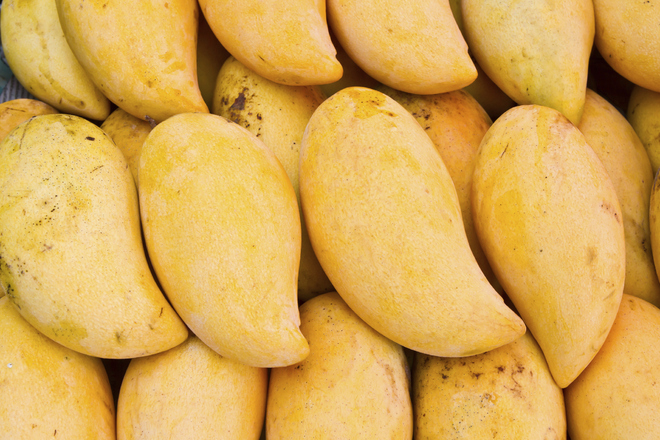Calcium carbide is prohibited under the Food Safety and Standards Regulations, yet mangoes and several other fruits are ripened artificially using the chemical

Consumption of fruits ripened through carbide induce prolonged hypoxia, which causes headaches, dizziness, mood disturbances, sleepiness, memory loss, cerebral oedema and seizures thinkstock
Pushpa Girimaji
Mangoes have already started coming into the market and my biggest worry is the safety of these fruits. I am told that these are transported raw and then ripened artificially, using a harmful chemical. Is this true? What can we, as consumers, do to protect ourselves?
It is true that mangoes and several other fruits are ripened artificially using calcium carbide, despite the fact that it is prohibited under the Food Safety and Standards ((Prohibition and Restrictions on Sales) Regulations, 2011.
Ironically, it’s now 35 years since the government first introduced in 1979, Section 44 AA in the PFA Act, prohibiting the sale of fruits ripened with calcium carbide. Yet, till today, the prohibition is not effective and fruits ripened with the banned chemical continue to be sold in the market. When the PFA Act was replaced with the FSS Act and the food safety regulator came into being, one expected the regulator to look at the issue in depth, get a comprehensive country-wide survey done to gauge the extent of the problem, come up with alternate, safe and feasible method of artificial ripening and most important, plug the retail sale of calcium carbide, so that it is not available to fruit wholesalers. (Calcium carbide is basically manufactured for industrial use and not for the food industry) But obviously, that is not happening.
In March last year, the government informed the Rajya Sabha (in response to a question) that following reports of use of artificial colours and ripening agents in vegetables and fruits, a Joint Committee for Research on Food Safety had been set up in August 2010 and the committee had recommended further research studies to generate information and data regarding the extent of use and effect of artificial ripening agents and other chemicals in fruits and vegetables. Four years hence, we still do not have that data!
So as consumers, we need to put pressure on the food safety authorities in the states to enforce the regulation stringently so that mangoes ripened with calcium carbide are not sold in the market. Write letters, seek information through the RTI and generally make it known to the enforcement agencies that consumers want safe fruits.
What are the harmful effects of calcium carbide? Can one file a complaint against a retailer/wholesaler for selling such harmful fruits?
In an article titled “Consuming fruits ripened artificially by calcium carbide may pose health problems” put up on its website, the food regulator (Food Safety and Standards Authority of India) says that consumption of such fruits “may affect the neurological system by inducing prolonged hypoxia (low oxygen reaching the blood and tissues), which causes headache, dizziness, mood disturbances, sleepiness, mental confusion, memory loss, cerebral oedema (swelling in brain caused by excessive fluids) and seizures”. While mangoes, bananas and papaya are generally ripened with calcium carbide, sometimes even sapota, dates and tomatoes were subjected to the chemical treatment, according to the article. Yet, after saying all this, the regulator does not talk about the extent of the problem or the plan of action put in place to eliminate the menace.
If you suspect that the fruit that you have bought is ripened with calcium carbide, you can complain to the local food safety authority. They raid the place and if they find the presence of calcium carbide in the premises, they prosecute the wholesaler or the retailer as the case may be. If you have suffered any ill effects of consumption of such fruits, you can seek compensation too.
In recent years, some states have started taking cognizance of this problem and have been taking action against wholesalers, found storing calcium carbide. These efforts have to be now stepped up, so that consumers do not eat harmful fruits.

No comments:
Post a Comment